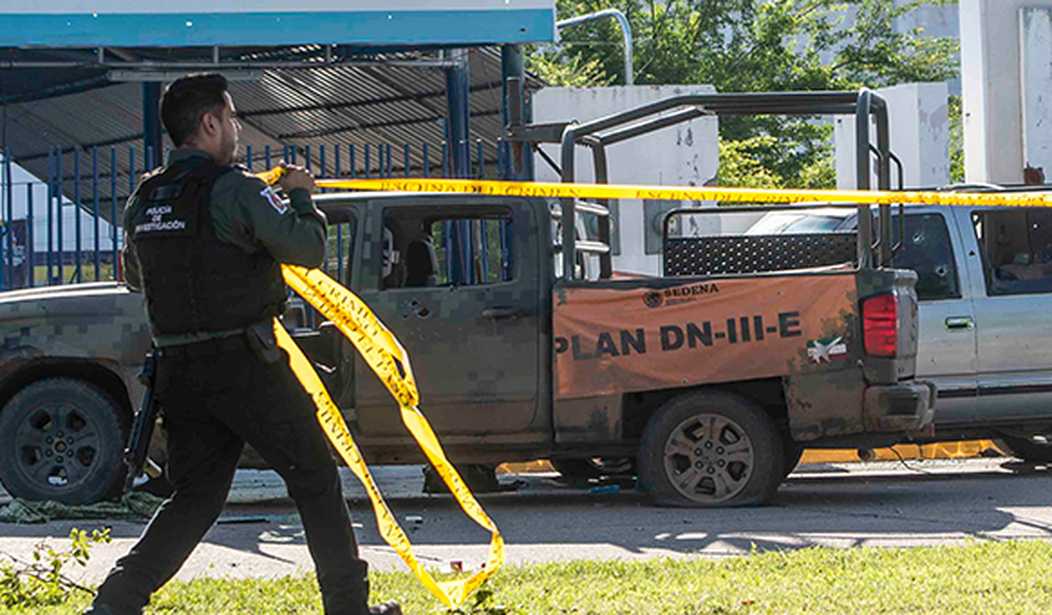It seems like once a week someone at some publication pens a story all about how American guns are somehow responsible for the violence taking place in Mexico. Seriously, we’ve all seen these stories and the opinions they form in the minds of millions of Americans.
It’s an opinion that was shared by President Obama who famously tried to use that violence to justify gun control here in this country…just before news broke that his administration was facilitating the sale of guns to the cartels in the first place. That didn’t exactly help his case.
Regardless, the stories continue to roll out, almost as if journalists as a whole are somehow obligated to continue spouting this.
The latest example comes from Foreign Policy.
In Nov. 25, 2019, while thousands of women took to the streets of Mexico City to mark the International Day for the Elimination of Violence Against Women, Abril Pérez was shot to death by a hitman. The 48-year-old executive of a Mexican online retail store and mother of three was on her way to the airport to return home to Monterrey after a custody hearing. She’d recently divorced Juan Carlos García, a former Amazon Mexico CEO and the father of her children, whom she had accused of attempted murder 11 months prior for allegedly creeping into her home in the middle of the night and beating her with a baseball bat. The gunman and his driver were arrested in March, but García, the suspected mastermind behind Pérez’s death, has reportedly fled to the United States.
What remains an open question is what role the United States played in the murder itself. As coronavirus-related lockdowns worsen the threat of domestic violence for women around the world, women in Mexico face an additional danger: the flood of American guns into the country. “The U.S. talks about how drugs and migrants cross the border from Mexico,” said Maura Roldán, a researcher on gun violence from Mexico City. “But it hasn’t recognized its role in the rise in violence in Mexico. It doesn’t mention the fact that it’s providing the guns.”
While it’s impossible to know the provenance of the murder weapon in Pérez’s case—Mexican homicide databases do not include this information—what is certain is that a steady stream, or torrent, of American firearms since the early 2000s has contributed to a spike in gun-related deaths in Mexico, in turn transforming and exacerbating gender violence. Seventy percent of guns recovered as part of a criminal investigation in Mexico are traced back to the United States, according to data from the U.S. Bureau of Alcohol, Tobacco, Firearms and Explosives.
The problem with this, however, is that it continues to ignore the reality on the ground in Mexico.
First, while many guns in Mexico did come from the United States, it’s important to note that almost all of them are purchased illegally. They’re either black market guns in the first place or, as we learned from the uncovering of Operation Fast and Furious, they’re purchased through illegal straw buyers. We’re already trying to prevent guns from falling into the wrong hands.
However, the bigger issue is that Mexico has serious problems that no amount of American law is going to fix.
For one thing, they’ve been notoriously corrupt for decades, long before the rise of the cartels. I recall hearing from my fellow sailors about how they’d get shaken down by police in Tiajuana for a few extra dollars. That doesn’t happen in a vacuum. No, it happens because the agency and the culture surrounding it approve of that sort of thing.
Unfortunately, that’s the kind of culture that also was ill-prepared to oppose the cartels in the first place. After all, if cops can be bought, they will be bought by whoever has the most money. That means large, well-funded criminal organizations are going to basically own the police.
Now, let’s address the claim that Roldán makes about how the U.S. is being hypocritical because we focus on the drugs and human trafficking coming our way, but not the guns.
Roldán clearly doesn’t understand a thing about American gun laws because, well, we already try to stop the flow of guns south. It’s illegal and we don’t just hand out guns like party favors up this way. However, the problem is that those guns use the exact same pipelines the cartels use to shuttle drugs and people across the border. Those pipelines are damn hard to find on our end but often located in larger cities on the Mexican side.
The problems with violence in Mexico lay at the feet of the cartels. No one else.
After all, if guns were responsible alone, why is it that even our most violent cities aren’t even a pimple on the butt of Mexican violence?








Join the conversation as a VIP Member